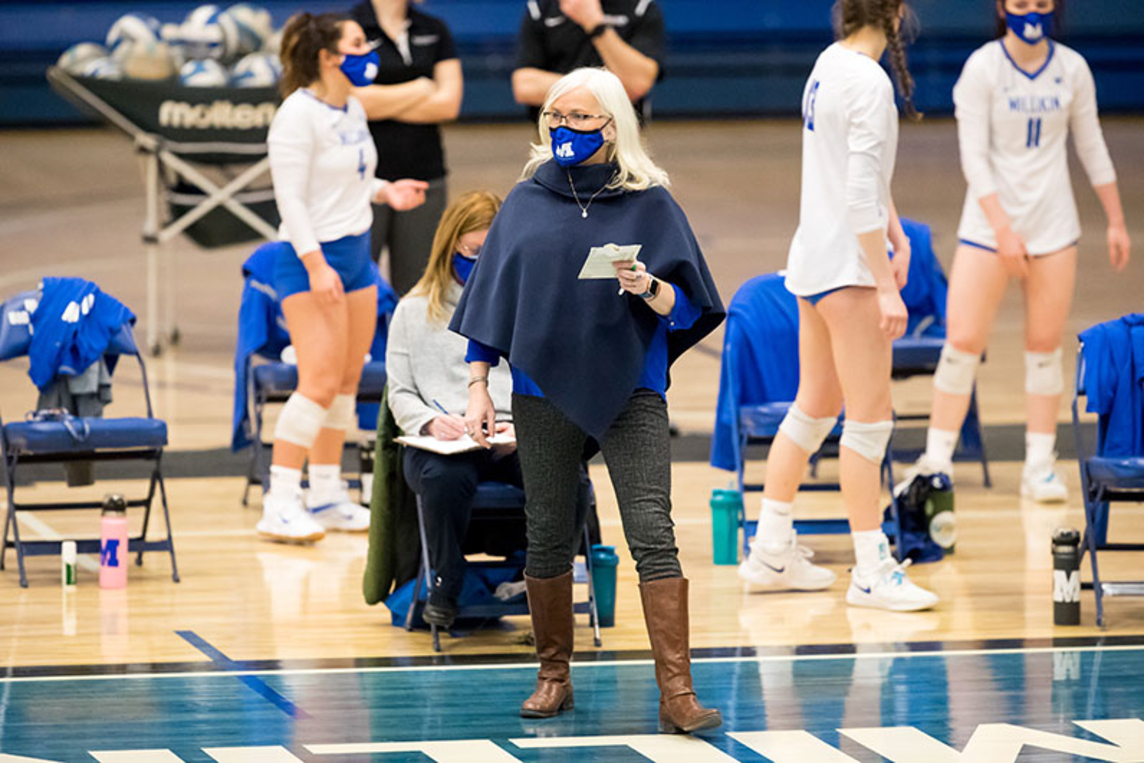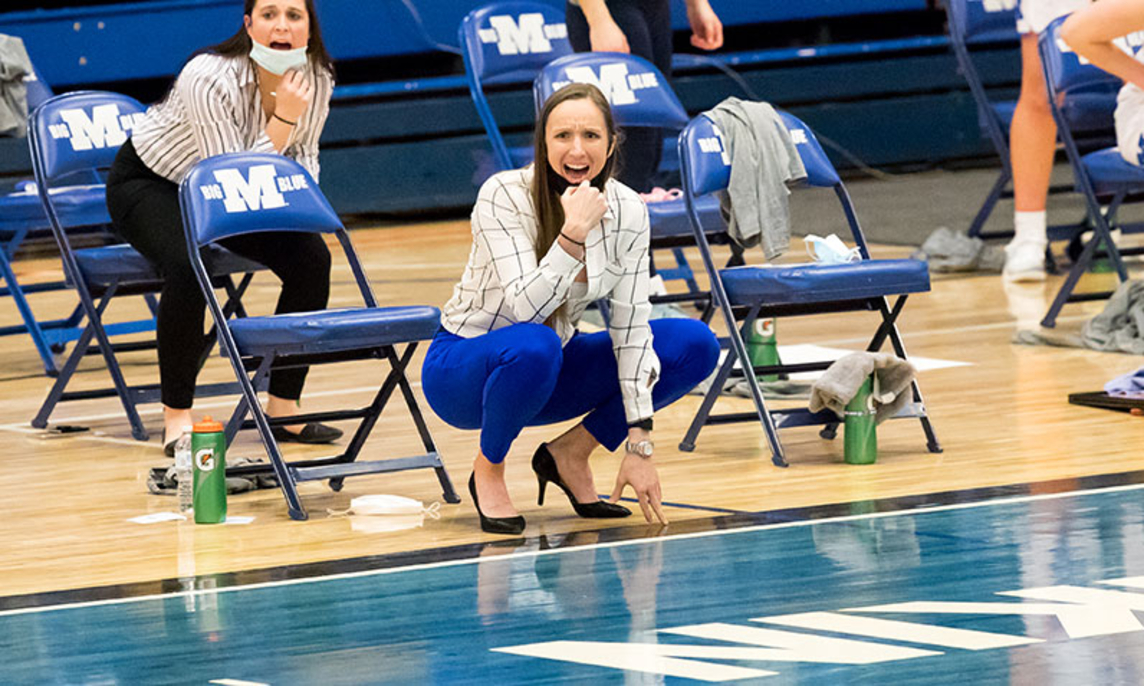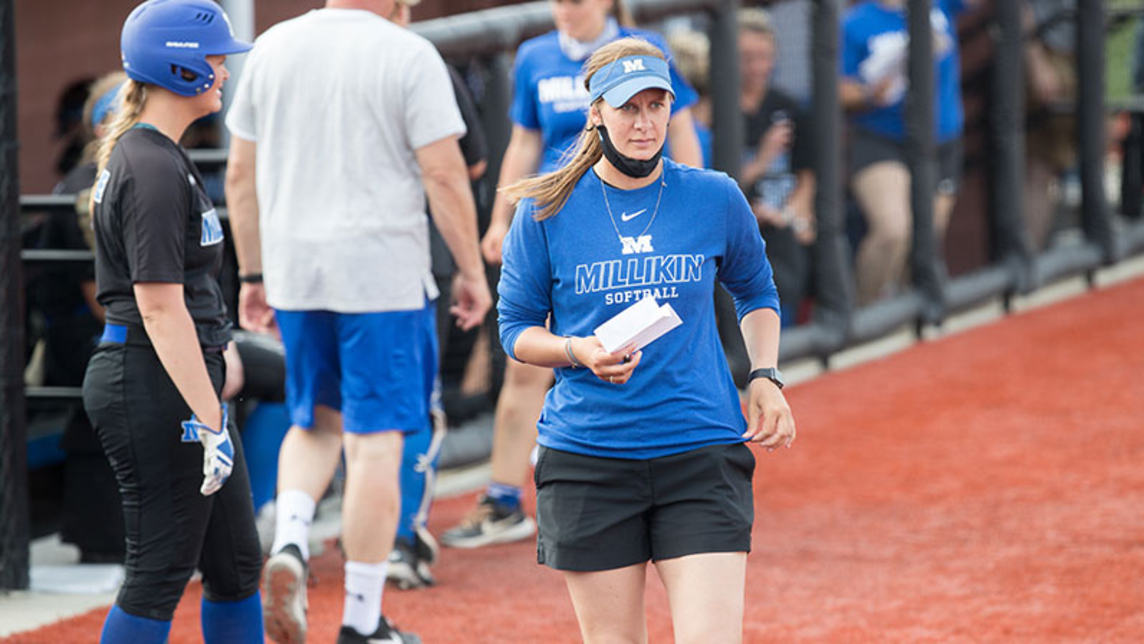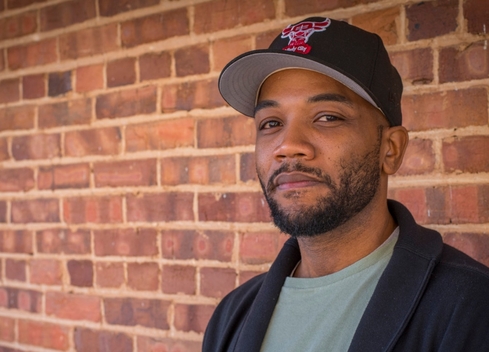In the latest edition of Millikin Magazine, we celebrate those who excelled in competition and became role models for the next generation of student-athletes. Millikin University has a long-standing history of women's athletics, and now, over 50 years and 10 NCAA teams later, Millikin is celebrating a proud tradition of women wearing the Big Blue.
Big Blue Coaches Reflect on Impact of Women's Sports
In 2020, Millikin University marked 50 years of women's athletics, an occasion that the University is celebrating this year by honoring the courage and determination of the women who forged the path for future generations of Big Blue women to compete in sports.
Depending on the perspective, the milestone of 50 years of women in athletics is either a long stretch of time to reflect upon, or an opportunity that hasn't been around nearly long enough. Three Big Blue women's athletics coaches discussed what the momentous occasion meant to them, as well as the importance of sports and the impact they hope to leave upon the women they coach and mentor.
Debbie Kiick is in her 21st season as head coach of Millikin’s volleyball program and her coaching career spans back more than 40 years. Her perspective on women’s athletics encompasses the era before athletic opportunities for women to participate and the groundbreaking changes that occurred when Title IX was passed in 1972.
Debbie Kiick
"When I was young, I got to catch fly balls for my father and brother, but I didn't have the same opportunities to actually play," Kiick said, recalling her first experience in sports. "If I got five swings, they got 500 swings," she said.
During Kiick's senior year of high school, girls were first allowed the opportunity to participate in organized sports, but they were not afforded the same resources as the existing men's teams. "Our uniforms were retired football jerseys. We bought our own fabric and made our uniforms. We glued felt numbers on cotton shirts," Kiick described, mentioning that actual opportunities to compete were few and far between.
Kiick continued her athletic career at Eastern Illinois University in Charleston, Ill., competing on both the softball and women's basketball teams. Following her graduation in 1980, she began what would be a decorated career in coaching women's sports. The qualities she developed as an athlete, including her work ethic, attention to detail, grit and determination helped shape Kiick's identity as a coach.
"Women did it all early in my career."
Through decades of coaching, she has witnessed the landscape of women's participation in sports change vastly. Many women she now coaches, and some younger members of Millikin's coaching staff did not face the challenges and scant opportunities that Kiick experienced.
"We didn't have to fight for the same types of things. A lot of things have been more equal, and we were definitely more included," remarked Olivia Lett, head coach of Millikin's women's basketball program.
Olivia Lett
While great strides have certainly been made for women to receive equal opportunities in athletics, Kiick believes the work to achieve equal opportunities for women is an ongoing effort that will be passed to the next generation of female athletes.
"The fight for equality in women's athletics is not linear. We make improvements and sometimes there are backslides," Kiick explained.
While a great deal of Kiick's athletic and coaching career has been dedicated to the fight for women's inclusion and equality, Millikin softball's co-head coach Katie Tenboer has a different history with sports. "I started playing whenever T-ball started and have played forever," Tenboer recalled.
As co-head coaches, Tenboer and Whitney Sowers are passionate about the impact they have on their student-athletes, on and off the field. "If all they leave with are memories of how many games we won and lost, that would be tragic," Tenboer said. Sowers' coaching strategy takes into account her athletes' entire lives, not just their role as softball players.
"They spend 22 hours a day off the field and two hours on the field. A lot of our focus is what we are doing in that two hours and how we can have an impact on them off the field," Sowers said. Values such as leadership and teamwork are also emphasized by the softball coaches in their mission to prepare their team for games and life after graduation.
Katie Tenboer
Lett highlights these same values with her basketball players, while also striving to demonstrate examples of strong women that stretch beyond career and athletic achievements, including Whitney Getz, an assistant women's basketball coach. "Whitney is a mom of four who stays at home, and that is also a strong woman." Lett said.
"I try to show my athletes how success looks different for everyone."
When asked to consider what 50 years of women in athletics meant to them, both Lett and Tenboer mentioned how they were the first generation of women in their family to see girls playing sports as a norm. "Sports were a large part of my family's life. It was part of our identity, and that wasn't abnormal," Tenboer recalled.
Lett said that she was impacted by how other women in her family didn't have the same opportunities to participate in organized sports. "My mom never got to play basketball growing up and my grandma, I'm sure, has probably never touched a basketball and she's been in a gym hundreds of times," Lett remarked.
"It is hard to grasp a world without women's sports. I appreciate that Millikin was one of the front runners in terms of a lot of things in women's athletics," Lett explained. "For me, it's a moment to think about what other people didn't necessarily have, because I think we take that for granted sometimes," she noted.
Tenboer says that despite the inequalities that still exist for women in athletics, the growth in opportunities has been exponential and has greatly impacted women of all ages. "We've come a long way and I think celebrating that is important," Tenboer reflected.
Kiick, who witnessed first-hand the growth in opportunities for women in sports, said that Millikin's celebration of 50 years in women's athletics demonstrates the value of reflecting on the past and working toward the future.
"I feel a great sense of pride looking from where we started to where we are now, as well as a continued focus on the responsibility to carry the torch for equality," she said.





